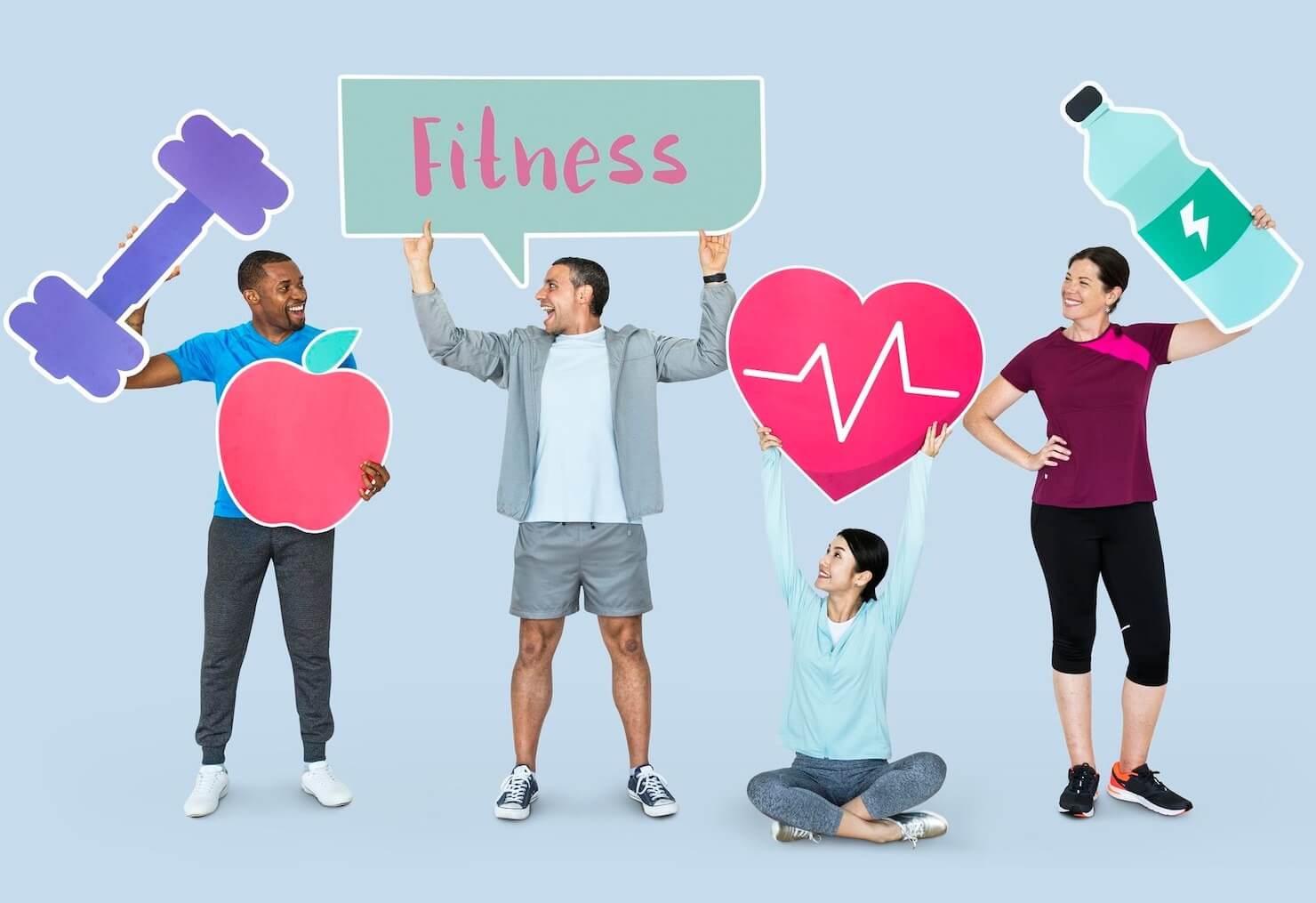As Generation Z (born between 1997 and 2012) comes of age, they’re reshaping various aspects of society, and health is no exception. Unlike previous generations, Gen Z is approaching wellness with a more holistic, proactive, and inclusive mindset. Their views on health encompass not only physical fitness but also mental, emotional, and even environmental well-being. With an emphasis on personalized care, digital tools, and sustainable choices, Gen Z is redefining wellness in a way that aligns with their values of authenticity, inclusivity, and purpose.
In this article, we’ll explore how Gen Z is transforming the wellness industry and highlight key trends that are shaping their approach to health.
1. Holistic Health: Mind, Body, and Soul
For Gen Z, health isn’t just about physical fitness—it’s about overall well-being. This generation embraces the idea that mental, emotional, and spiritual health are just as important as physical health. They are turning to holistic practices like yoga, meditation, and mindfulness to manage stress, anxiety, and other mental health issues.
Gen Z prioritizes self-care and values practices that allow them to maintain a balance between their work, personal life, and emotional well-being. Apps focused on mindfulness and guided meditation, like Calm and Headspace, have become staples in their daily routines, demonstrating their proactive approach to managing stress.
2. Mental Health Takes Center Stage

One of the defining characteristics of Gen Z is their openness about mental health. They are breaking the stigma surrounding mental illness and advocating for better mental health resources. Unlike previous generations who may have hesitated to seek therapy, Gen Z views therapy as a normal and essential part of life.
Access to digital tools like virtual therapy platforms and mental health apps has made mental health care more accessible for Gen Z. Online therapy services like BetterHelp and Talkspace are popular among them, offering flexible, affordable counseling.
3. Sustainability and Ethical Choices
Gen Z is more environmentally conscious than any previous generation, and this extends to their health and wellness choices. They prefer brands and products that align with their values of sustainability and ethical responsibility. Whether it’s choosing plant-based diets, avoiding fast fashion, or using eco-friendly products, Gen Z considers the environmental impact of their health decisions.
For example, plant-based eating has become a significant trend among Gen Z, as it combines their desire for healthier eating with their commitment to reducing their environmental footprint. Brands like Beyond Meat and Impossible Foods are catering to their demand for sustainable, ethical alternatives.
4. Digital Health Tools

Gen Z has grown up with technology, and they rely heavily on digital tools to manage their health. Wearable devices, health apps, and virtual fitness platforms are integral to their wellness routine. Whether it’s tracking steps, monitoring sleep, or following guided workouts, Gen Z uses technology to stay in tune with their health.
They also value data-driven health management. Apps that offer personalized insights, such as MyFitnessPal for nutrition tracking or Fitbit for fitness metrics, are popular because they allow users to customize their wellness journeys.
5. Inclusivity in Wellness
Gen Z is the most diverse generation in history, and they expect wellness brands to reflect this diversity. They demand inclusivity in everything from fitness programs to mental health resources. Gender-neutral wellness products, inclusive fitness platforms that cater to all body types, and mental health services that acknowledge the unique challenges of different communities are non-negotiable for them.
This generation is also vocal about representation in the wellness space. They expect brands to cater to a diverse range of ethnicities, body sizes, and genders in their marketing and product offerings.
6. Plant-Based and Functional Nutrition

Gen Z has a strong interest in plant-based diets, functional foods, and supplements that offer targeted health benefits. They’re moving away from processed foods and are instead focusing on whole, nutrient-dense foods that boost physical and mental well-being. Foods rich in adaptogens, probiotics, and superfoods like turmeric, matcha, and chia seeds are especially popular.
They’re also exploring supplements that promote overall wellness, such as ashwagandha for stress relief, omega-3 for brain health, and vitamin D for immunity.
7. Fitness as a Lifestyle
For Gen Z, fitness is not just about aesthetics; it’s about feeling good, both physically and mentally. While earlier generations may have focused on hitting the gym to lose weight or build muscle, Gen Z is more likely to participate in activities like yoga, pilates, and hiking that offer mental clarity and relaxation along with physical benefits.
Digital fitness platforms like Peloton and ClassPass are also favorites of Gen Z, allowing them to stay fit while maintaining flexibility in their workout routines. They prefer personalized, on-demand workouts that can be done at home or on the go.
8. Focus on Preventative Health

Gen Z is taking a preventative approach to health, emphasizing the importance of regular check-ups, healthy eating, and fitness to avoid future health problems. They prioritize regular exercise, balanced diets, and routine medical screenings to maintain optimal health. This generation is acutely aware of the dangers of chronic diseases like diabetes, heart disease, and obesity, and they take steps to prevent these conditions from developing.
9. Digital Detox and Mindful Tech Us
While Gen Z is highly connected, they are also aware of the negative effects of excessive screen time. Many are actively seeking ways to disconnect from their devices and engage in digital detoxes. Mindfulness around tech usage is a growing trend, with many Gen Z individuals setting boundaries for how much time they spend online to avoid burnout and maintain mental well-being.
Apps like Forest and Flipd, which help users limit screen time, are gaining popularity as Gen Z seeks balance between their digital and real lives.
10. DIY Wellness and Home Remedies

Gen Z is resourceful when it comes to health and wellness, often opting for DIY remedies and natural alternatives to traditional medicine. Whether it’s using essential oils for stress relief or experimenting with homemade skincare products, this generation is all about taking control of their wellness in a hands-on way.
This trend reflects their desire for personalized health solutions that they can customize to fit their individual needs.
Frequently Asked Questions (FAQs)
Q1: Why is Gen Z so focused on mental health?
Gen Z has grown up in a world where mental health conversations are more open than ever. They recognize the importance of mental well-being and view therapy, mindfulness, and self-care as integral parts of their health.
Q2: How does Gen Z use technology to manage their health?
Gen Z uses wearable devices, fitness apps, and virtual health platforms to track their physical and mental well-being. Technology allows them to access real-time data and personalized insights to optimize their health.
Q3: Why is sustainability important to Gen Z’s wellness choices?
Gen Z is deeply concerned about environmental issues and prefers health and wellness brands that prioritize sustainability. This extends to their choices in food, products, and even fitness, as they seek to reduce their carbon footprint.
Q4: What are some popular wellness trends among Gen Z?
Some of the popular wellness trends include plant-based diets, mindfulness practices, digital detoxes, and functional nutrition. Gen Z is also interested in mental health tech, personalized medicine, and sustainability in their wellness routines.
Q5: How is Gen Z redefining fitness?
Gen Z sees fitness as part of a broader wellness lifestyle. Instead of focusing solely on physical appearance, they prioritize workouts that support mental clarity, stress relief, and overall well-being. This generation favors activities like yoga, pilates, and digital fitness platforms that allow for flexibility.




